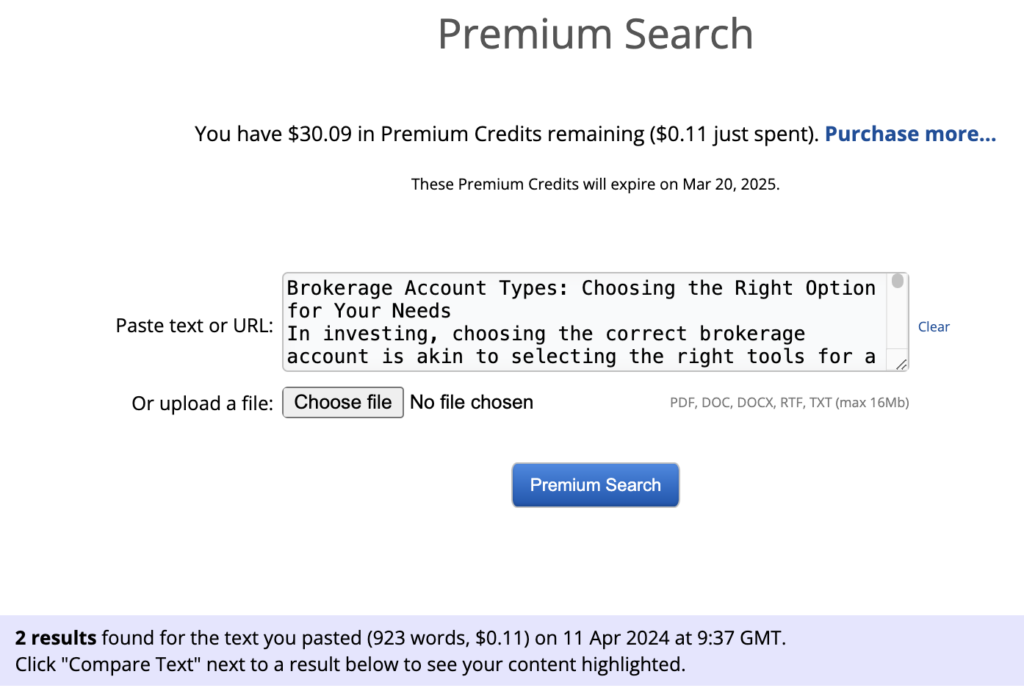Brokerage Account Types: Choosing the Right Option for Your Needs
In investing, choosing the correct brokerage account is akin to selecting the right tools for a job. Each investor’s needs, goals, and circumstances are unique, necessitating a careful evaluation of available options. This article will guide you through selecting the most suitable brokerage account type to meet your financial objectives.
Disclaimer: This article is for educational purposes only. Nothing written here should be construed as financial advice. Investment and trading involve risk, and there is no guarantee for profits. More people lose money than receive returns when they trade.
Understanding Your Investment Goals and Needs
Before discussing the specifics of brokerage account types, it’s crucial to assess your investment goals and needs. Are you investing for the short term or the long term? What level of risk are you comfortable with? Do you require access to your funds immediately, or are you prepared to lock them away for long-term investment?
By answering these questions, you can better align your choice of brokerage account with your overarching financial objectives. For example, if you’re saving for retirement and prioritise tax efficiency, a different type of brokerage account may be the most suitable option. Conversely, if you’re seeking flexibility and accessibility, an individual brokerage account from a regulated institution like ADS broker might be more appropriate.
Types of Brokerage Accounts
Individual Brokerage Accounts
Individual brokerage accounts are the most common type of brokerage account, offering flexibility and autonomy to investors. With a personal account, you have sole ownership and control over your investments, allowing you to tailor your portfolio to your specific preferences and goals.
One of the primary advantages of an individual brokerage account is its tax flexibility. Unlike retirement accounts, there are no restrictions on when you can access your funds or penalties for early withdrawals. However, it’s essential to be mindful of the tax implications of your investment decisions, as capital gains and dividends may be subject to taxation.
Joint Brokerage Accounts
Joint brokerage accounts are designed for multiple individuals, such as spouses or business partners, who wish to pool their resources and invest together. These accounts offer shared ownership and equal access to the invested funds, making them ideal for collaborative investment strategies.
One of the key benefits of a joint brokerage account is its simplicity and convenience for couples or partners managing their finances jointly. However, it’s essential to establish clear communication and agreements regarding investment decisions and account management to avoid potential conflicts or misunderstandings.
Comparing Account Fees and Commissions

When selecting a brokerage account, it’s crucial to consider the fees and commissions associated with each option. Standard fees include account maintenance fees, trading commissions, and expense ratios for mutual funds and ETFs. These costs can vary significantly between brokerage firms, so comparing fee schedules and considering the impact on your investment returns over time is essential.
In addition to fees, it’s essential to evaluate the quality and value of the services provided by each brokerage firm. While low-cost brokers may offer competitive pricing, they may need more robust research tools, educational resources, or customer support. Conversely, full-service brokers may charge higher fees but provide personalised investment advice and a broader range of services.
Assessing Additional Features and Services
Beyond fees and commissions, it’s essential to consider the additional features and services brokerage firms offer. These may include research and educational resources, trading platforms and tools, mobile apps, and customer service and support. Depending on your investment style and preferences, these features can enhance your overall investing experience and improve outcomes.
Before selecting a brokerage account, take the time to explore and evaluate these additional features, ensuring they align with your needs and preferences. For example, if you’re an active trader, you may prioritise advanced trading tools and real-time market data. Conversely, if you’re a long-term investor, you may value comprehensive research and educational resources to inform your investment decisions.
Regulatory Considerations and Account Protection
When opening a brokerage account, regulatory considerations and account protection measures must be considered. In the UAE, brokerage firms are regulated by the Securities and Authorities Commision (SCA), which oversee their operations and ensure compliance with securities laws. You should ensure you are working with a broker that is regulated to make sure your funds are well protected.
Conclusion
Selecting the proper brokerage account is critical in achieving your financial goals and building wealth over time. By understanding the various types of brokerage accounts, assessing your investment objectives, and carefully evaluating the features, fees, and services offered by brokerage firms, you can make an informed decision that aligns with your needs and preferences. Remember, investing is a journey, not a destination.







